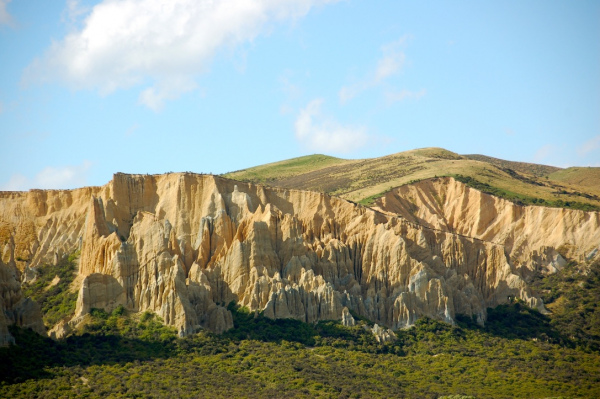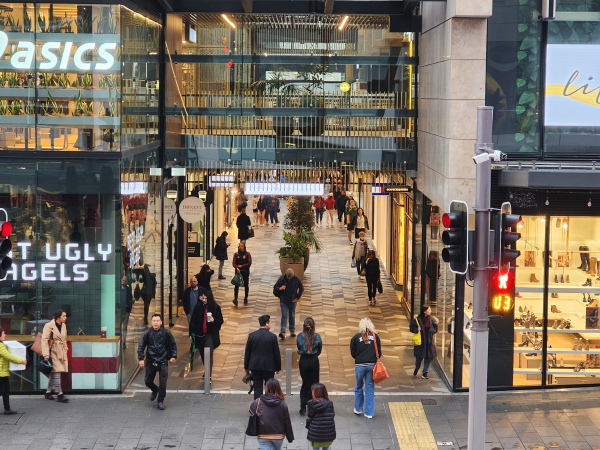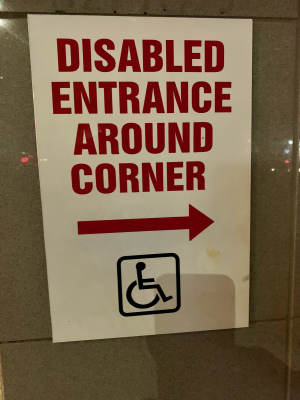Digitally Accessible Tourism
As services move more and more to digital, it is vital to consider digital accessibility from the start in any industry, including the tourist/travel industry. Having digitally accessible information, booking and services allows disabled people, and everyone, easier access. Whether the market is domestic or international travellers, improved digital accessibility can increase your market, avoid risk of litigation and demonstrate Aotearoa New Zealand's values of manaakitanga (hospitality).

In the breath-taking landscapes of Aotearoa New Zealand, tourism seems to be thriving again as people from across the globe come to experience our natural wonders. From the majestic mountains to the stunning beaches, there's something for everyone in this beautiful country.

However, as the digital age infiltrates tourism, it's essential to ensure that all visitors, regardless of their abilities and disabilities, can access the wonders of New Zealand's destinations. This is where digital accessibility plays a crucial role.
Digital accessibility is about ensuring the design and development of digital content and technologies is done in a way that is usable by everyone, including people with disabilities. In the context of New Zealand tourism, this means making sure that websites, mobile apps, and other digital platforms are designed with accessibility in mind.

The goal should be for New Zealand tourism to be inclusive for everyone, regardless of their physical, sensory, or cognitive abilities. Everyone should have the opportunity to explore and experience the beauty of New Zealand. By ensuring that digital platforms are accessible, tourism operators can welcome a more diverse range of visitors and provide them with a positive and inclusive experience.
Many countries where are visitors come from have legislation in place to ensure that digital accessibility is considered. Travellers from these countries not only expect accessible services but will sue companies that don’t provide information in an accessible way. Considering the accessibility of your website is then important to avoid risk of litigation.
 By prioritising digital accessibility in the tourism industry, New Zealand demonstrates its dedication to upholding our values of manaakitanga (hospitality) and ensuring that everyone can fully participate in enjoying tourism experiences.
By prioritising digital accessibility in the tourism industry, New Zealand demonstrates its dedication to upholding our values of manaakitanga (hospitality) and ensuring that everyone can fully participate in enjoying tourism experiences.
If you are in the travel or tourist industry, here are a few things for you to consider to make your digital offering more accessible to everyone.
Accessible Website Design
Tourism websites should be designed with accessibility features, such as alternative text for images, keyboard navigation options, and clear headings and labels. This ensures that people using screen readers or other assistive technologies can navigate the site effectively.
Relevant and Detailed Content
As well as making the site itself accessible, it is also important to include relevant and detailed content about accessible services. Disabled people often do a lot of pre planning and including
Mobile Accessibility
With the increasing use of mobile devices for travel planning, it's crucial to ensure that mobile apps related to tourism are also accessible. This includes features like scalable fonts, touch-friendly controls, and compatibility with screen readers.
Multimedia Accessibility
Many tourism websites include multimedia content like videos and virtual tours. It's essential to provide captions and audio descriptions for videos so that people with hearing or visual impairments can access the content.
Booking and Reservation Systems
Online booking systems should also be designed to be accessible to everyone. This includes not only making the interface as accessible but also providing alternative ways to book, such as through phone or email.

By considering digital accessibility in tourist websites and platforms, New Zealand can create a more inclusive and welcoming environment for all visitors. Not only does this benefit people with disabilities, but it also enhances the overall user experience for everyone.
If you’d like to find out more about how to make your digital platforms and information accessible and compliant with international legislation, please get in contact with us and we’d be happy to help.

